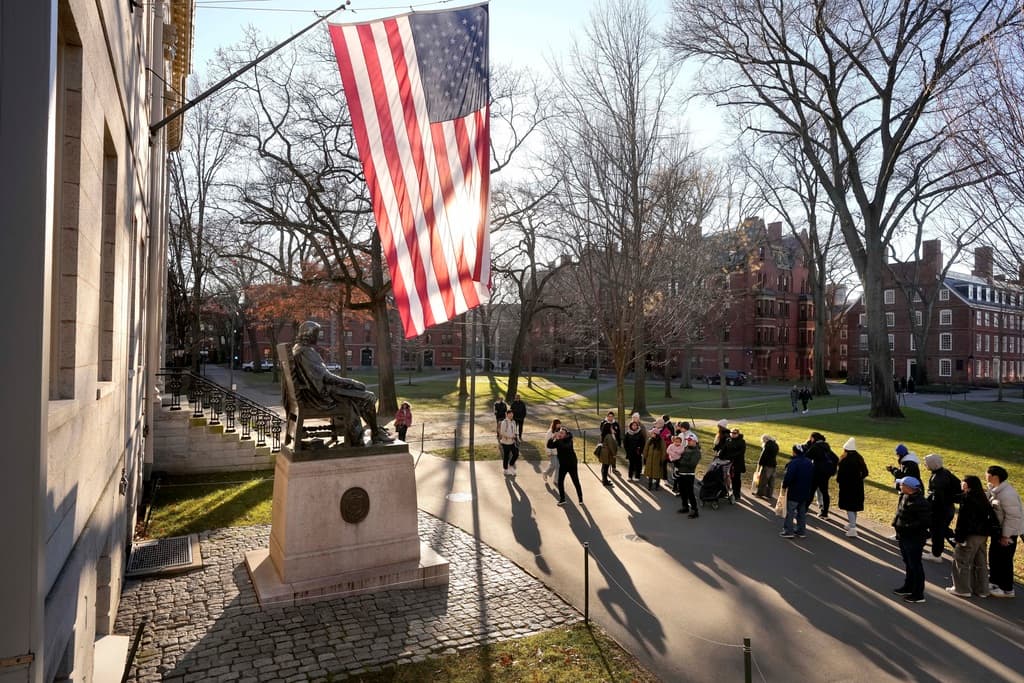Congressional Probe Into Antisemitism at Harvard Could Jeopardize Federal Grants to Elite Universities
‘We don’t think taxpayer dollars should flow to colleges that fail to protect their students,’ the chairwoman of the committee investigating Harvard, Virginia Foxx, says.

A congressional probe into antisemitism in the Ivy League could lead to the suspension of federal grant money to Harvard and other elite universities, Congresswoman Virginia Foxx warns in an interview with the Sun.
Three of Harvard’s top leaders have already been hit with subpoenas for allegedly failing to produce documentation relating to antisemitism to the House Committee on Education and the Workforce. Now, Ms. Foxx, who chairs that committee, says she is hoping to expand that investigation to scrutinize the financial assistance granted by Congress to support university research and projects.
“We think that there needs to be an examination of all the federal funding of universities failing to address antisemitism,” Ms. Foxx says. “We don’t think taxpayer dollars should flow to colleges that fail to protect their students.” She said she plans to work with various congressional agencies and committees to ramp up scrutiny on any grant applications from Harvard.
The consequences for the nation’s richest university, even as it boasts a more than $50 billion endowment, could be devastating. In 2021, Harvard reported that it received $625 million in federal funds, about 67 percent of the school’s total sponsored revenue that year. Harvard received many of its grants based on its reputation of academic excellence, Ms. Foxx says. Now, though, “Harvard’s reputation is almost irreparably damaged.”
Other elite institutions could also be at risk. Another target of the House committee’s antisemitism inquiry is Columbia University, the second-largest recipient of federal largesse behind Harvard. About 19 percent of incoming Columbia undergraduates are beneficiaries of Pell Grants, a federal subsidy for the highest-need college students in the country.
The Sun asked Ms. Foxx whether Congress would consider suspending federal support to Harvard as a penalty — in addition to the subpoenas — for repeatedly failing to fulfill the committee’s request for 24 categories of documents and communications related to antisemitism.
“It’s not a matter of punishing,” Ms. Foxx responds, “but now that they have brought into question the safety of students and they’re taking a moral position on antisemitism, I think what they do is they open themselves up to questioning of all of their decisions.”
The House committee launched the investigation in December, two days after it grilled Harvard’s president, as well as the heads of the University of Pennsylvania and the Massachusetts Institute of Technology, over the antisemitism issue. More than 40 percent of the 2,516 pages of documentation Harvard has provided are already publicly available, which Ms. Foxx calls a “woefully inadequate” response. The school’s legal counsel now has until March 4 to produce the 11 remaining key areas of documentation.
Ms. Foxx’s term as committee chairwoman ends in January of 2025 upon the expiration of a first-of-its-kind waiver to serve a third term. Yet she is running for re-election to the House in 2024 and hopes to remain a member of the committee, which she has served on since joining Congress in 2005.
“I still have ten months left,” Ms. Foxx asserts. “We have a lot of work to do in those ten months, and I’m really focused on finishing what we have started in the committee.”

